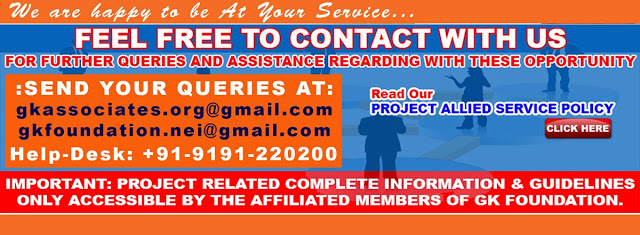FCRA PROJECTFCRA-RTY
FCRA PROJECT: USAID- INDIA PARTNERSHIPS PROGRAM!

Deadline: ROUND THE
YEAR
The IPP supports testing, adoption and scaling of creative or innovative
solutions to meet development challenges in the areas of health, food security,
clean energy, gender equality, female empowerment, maternal and child health,
prevention and treatment of infectious diseases, affordable health care, water
and sanitation access, early grade reading, promotion of clean and renewable
energy, forestry, food security, triangular cooperation, gender and financial
inclusion.
To be eligible, all Implementing Partners must be legally registered
entities under applicable law and eligible under the relevant laws to receive
funding from a foreign source. Individuals are not eligible to be Implementing
Partners, although they may be Resource Partners. USAID/India encourages
applications from organizations that have not previously received financial
assistance from USAID. Applicants must comply with applicable local laws,
including taxation. For Indian organizations that receive USAID/India funding,
it may be necessary to obtain GOI approval in accordance with the Foreign
Contributions Regulation Act (FCRA) prior to receiving funds. USAID/India
advises prospective Applicants to consult local counsel on these issues in the
Concept Paper phase. While this APS is open to worldwide competition,
USAID/India is particularly interested in working with the Indian private
sector. This includes non-traditional development partners such as private
businesses, business and trade associations, foundations, and financial
institutions, in addition to traditional non-profit NGOs and for-profit
development firms. Indian Government entities are also eligible.
Through this solicitation, USAID/India announces its desire to engage in
new--or to expand existing-- public and private sector partnerships for India
in priority areas defined by the Government of India (GOI) and the United
States Government (USG). The IPP supports testing, adoption and scaling of
creative or innovative solutions to meet development challenges in the areas of
health, food security, clean energy, gender equality, female empowerment,
maternal and child health, prevention and treatment of infectious diseases,
affordable health care, water and sanitation access, early grade reading,
promotion of clean and renewable energy, forestry, food security, triangular
cooperation, gender and financial inclusion.




